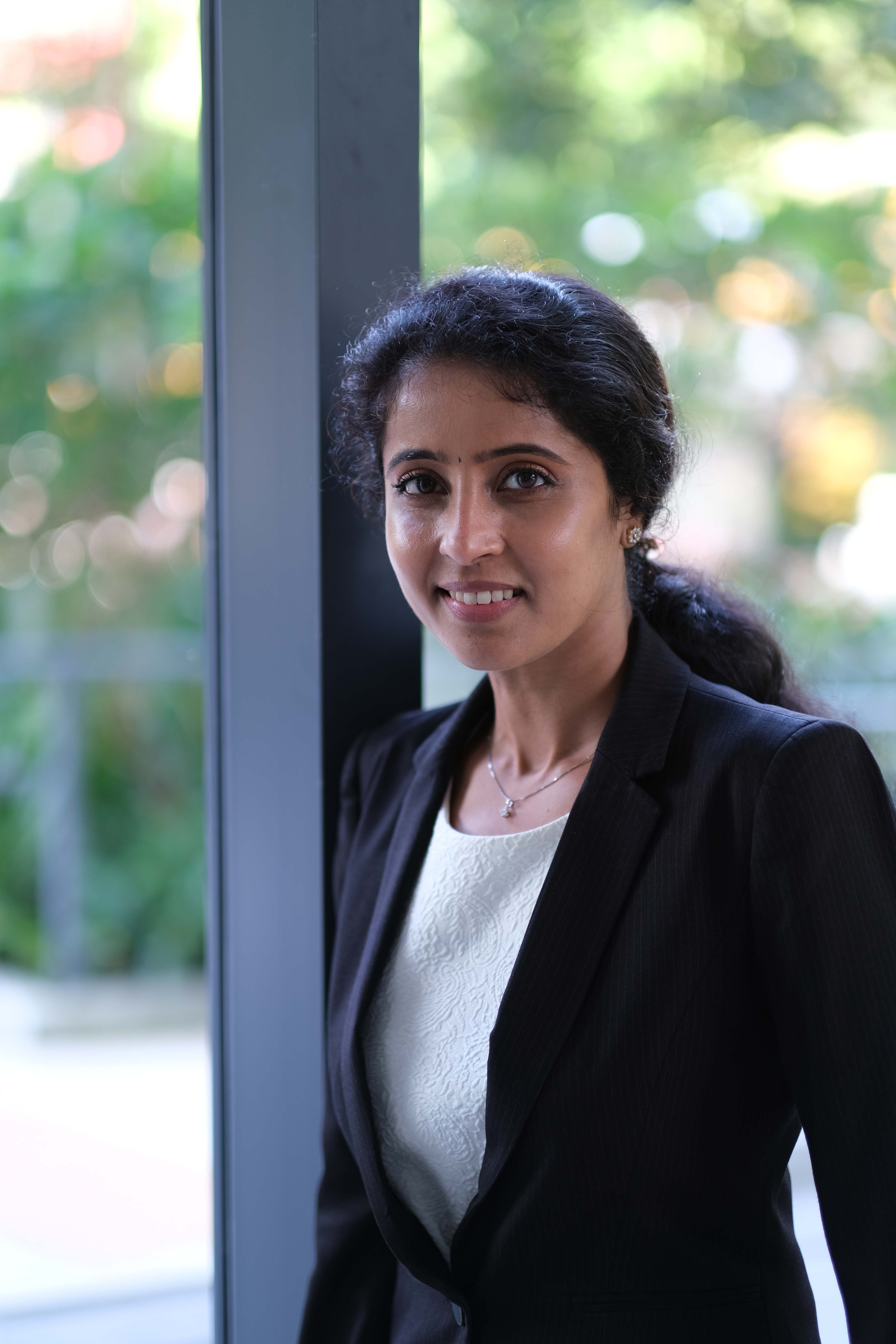On the shoulders of pioneers: Prof Madhavi Srinivasan
Prof Madhavi Srinivasan's research on materials for eco-friendly batteries looks set to power the next generation of electronic devices.
In this 30th anniversary issue, Pushing Frontiers talks to four NTU researchers who are pushing the frontiers of their respective fields. From devising sustainable ways of storing energy to understanding how gut microorganisms affect disease development, their research promises to impact societies and generations to come.

In the age of electric vehicles and other technological innovations, Prof Madhavi Srinivasan is on a mission to enhance the sustainability and performance of energy storage devices.
“My research focuses on the synthesis, fabrication and application of materials to improve the performance of electrochemical energy storage devices such as batteries and supercapacitors, while ensuring that they are sustainable at the same time,” says Prof Madhavi, who is the Director of the Global Alliance of Industries @ NTU (GAIN) and co-Director of the Singapore-CEA Alliance for Research in Circular Economy (SCARCE). She also holds an appointment with NTU’s School of Materials Science and Engineering.
Using innovative computational chemistry and machine learning methods, Prof Madhavi searches for new materials that can potentially transform the next generation of batteries. These high capacity and eco-friendly batteries can be used to power a variety of electronic innovations, ranging from electric vehicles to portable electronic devices.
Supported by an Advanced Manufacturing and Engineering grant from Singapore’s Agency for Science, Technology and Research, Prof Madhavi has embarked on another project to fabricate new structural batteries. These batteries will be made using materials that simultaneously store energy and can withstand mechanical stresses.
projects with the industry and its growing partnerships through GAIN. Under her leadership, GAIN has established a tie-up with the Alliance to End Plastic Waste that will leverage Singapore’s research capabilities to catalyse innovations that create value out of plastic waste.
“Partnerships between academia and the industry are important for translating findings from the laboratory into real-world innovations, as well as to ensure the sustainability of these technologies,” says Prof Madhavi.
She is also interested in developing environmentally friendly recycling technologies that can sort and recover valuable materials from e-waste. At SCARCE, a joint lab between NTU and the French Alternative Energies and Atomic Energy Commission, Prof Madhavi secured industry funding for collaborative projects on green recycling technologies such as using fruit peel waste to recover heavy metals from lithium-ion batteries. These technologies have resulted in three patents that have since been licensed to companies.
In another role as the Executive Director of the newly established NTU Sustainability Office, Prof Madhavi leads NTU’s efforts to become a global leader in sustainability.
The article appeared first in NTU's research & innovation magazine Pushing Frontiers (issue #20, June 2022).





.tmb-listing.jpg?Culture=en&sfvrsn=9b7345be_1)
.tmb-listing.jpg?Culture=en&sfvrsn=57e7d9a3_1)
.tmb-listing.jpg?Culture=en&sfvrsn=462ec612_1)